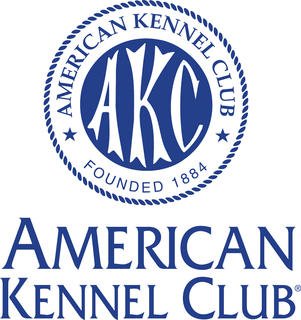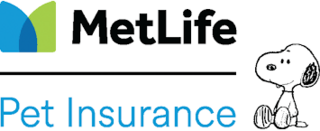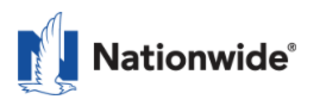8 Best Pet Insurance Companies of February 2026
Vet bills can add up fast — especially if your pet needs emergency care, surgery or long-term treatment for an illness. Veterinary costs have risen sharply, with estimated lifetime pet care costs up nearly 12% for dogs and 20% for cats since 2022, according to a report from Synchrony Bank.
Pet insurance can help offset costly vet care, with average monthly premiums around $62 for dogs and $32 for cats, according to the North American Pet Health Insurance Association's most recent data. But plans vary widely in what they reimburse, what they exclude and how much they cost. Below, we break down the best pet insurance companies, plus what you need to know before choosing a plan.
What to know about pet insurance
- Pet insurance reimburses you for diagnostic tests, hospitalization, surgery and more if your pet gets sick or injured.
- Though pet insurance seems similar to health insurance, it works more like your car or home insurance policy. You pay upfront then file an insurance claim for reimbursement.
- Much like your car insurance doesn't pay for oil changes, pet insurance doesn't cover routine care like vaccinations and annual check-ups.
- It's important to enroll your pet when it's young and healthy in order to avoid pre-existing condition clauses.
How we chose our top picks
To identify the best providers on the market, our editors and writers dedicated 1,000+ hours to researching, comparing and analyzing 50+ data points from the top pet insurance companies on the market.
Read the full methodology to learn more.
Our Top Picks for Best Pet Insurance of February 2026
- AKC - Best for Pre-Existing Conditions
- Embrace - Best for Healthy Pet Discount
- Figo - Best for Reimbursement Options
- MetLife - Best for Multiple Pets
- Nationwide - Best for Exotic Pets
- Pets Best - Best for Treatment of Mobility Issues
- Pumpkin - Best for Puppies and Kittens
- Spot - Best for Unlimited Coverage
- Offers supplemental accident and illness coverage for breeding pets
- Direct payments to vets available under certain conditions
- 24/7 vet hotline available to policyholders
- Coverage for congenital and hereditary conditions costs extra
- No dental coverage except tooth extractions due to injury
- 6-month waiting period for orthopedic conditions coverage
- Plan options
- Accident and illness, accident-only, preventive care
- Annual payout limit
- $2.5K, $5K, $7.5K,$10K, $15K, 20K, unlimited
- Reimbursement rates
- 70%, 80%, 90%
- Annual deductible
- $100, $250, $300, $400, $500, $600, $750, $1K
- Waiting periods
- 2 days for accidents, 14 days for illnesses
- Discounts
- Multi-pet
Why we chose AKC: The American Kennel Club’s (AKC) pet insurance policy offers unprecedented coverage for preexisting conditions. It covers illnesses and injuries sustained before the policy's effective date or during the waiting period. To qualify, you must keep the policy active for 365 days. Any preexisting issue that was initially excluded will be fully covered once the waiting period elapses and the policy renews. You can also pay extra for preventive care and coverage for end-of-life expenses, veterinary exam fees, behavioral therapy and issues related to breeding.
- High upper age limit for enrollment
- High annual reimbursement limit option compared to other competitors with annual caps
- Includes up to six months of pet travel insurance
- 25% discount for military members, veterans and eligible relatives on USAA-issued policies
- Limited wellness benefits
- Caps dental illness coverage at $1,000 a year
- Patellar luxation and hip dysplasia are excluded for six months
- Plan options
- Accident and illness, accident-only
- Annual payout limit
- $5K, $8K, $10K, $15K, $30K
- Reimbursement rates
- 70%, 80%, 90%
- Annual deductible
- $100, $250, $500, $750, $1K
- Waiting periods
- 14 days for illnesses
- Discounts
- Multi-pet, military and healthy pet
Why we chose Embrace: Embrace pet insurance is one of the few companies that offer a discount for keeping your pet healthy. If you don't exceed $300 in claims in the year prior to the discount period, you can earn 5% off your monthly premium the first year you qualify. The discount increases to 10% if you also qualify the following year.
- Up to 100% reimbursement with no annual limits
- No upper age enrollment limit
- Low deductible options
- Most affordable premiums
- 1-day waiting period for accidents
- No coverage on hereditary conditions if the pet is enrolled after 2nd birthday
- Low payout limits in wellness care plan
- Vet exam fees and physical therapy coverage require separate riders
- Plan options
- Accident and illness, wellness rider
- Annual payout limit
- $5K,$10K, unlimited
- Reimbursement rates
- 70%, 80%, 90%, 100%
- Annual deductible
- $100, $250, $500, $750, $1K
- Waiting periods
- 1 day for accidents, 14 days for illnesses
- Discounts
- Multi-pet
Why we chose Figo: Most competitors offer only up to 90% reimbursement. Figo stands out because pet owners can choose up to 100% reimbursement without annual payout limits and avoid copayments entirely. Pet owners can reduce their copayment to 0%, thanks to the insurer's 100% reimbursement option. (Generally, the lowest copayment provided by other insurers is 10%.) The company also offers endorsements that add coverage for pet boarding, lost or stolen pets (as in advertising costs and the value of the pet if it isn't found) and pet liability insurance.
- Fast accident-only coverage
- Low and no-deductible plans available
- 24/7 telehealth service
- Diminishing deductible for each claim-free year
- Flexible terms for annual limit and deductibles
- No standalone accident-only plan
- Terms and conditions vary by underwriter
- 6-month waiting period for cruciate ligament problems applies in some states
- Plan options
- Accident and illness
- Annual payout limit
- $2,000 to $10,000
- Reimbursement rates
- 70%-90%
- Annual deductible
- $50 to $500
- Waiting periods
- Same-day coverage for accidents, 14 days for illnesses, 6 months for orthopedic conditions
- Discounts
- Multi-pet discount and diminishing deductible
Why we chose Metlife: With MetLife, pet owners with multiple pets don’t have to stress about meeting a separate deductible for each animal. Policyholders can enroll up to three animals under one plan and each eligible vet visit contributes towards the same deductible. Once the deductible is met, every pet is eligible for coverage for the remainder of the year.
- No per-incident, annual or lifetime caps
- Covers alternative therapy for diagnosed conditions
- Direct payments available under certain conditions
- Owners of exotic pets must call to get a quote or sign up
- Limited coverage for hip dysplasia
- 12-month waiting period for knee injuries in dogs and cats
- Plan options
- Accident and illness, preventive care plan
- Annual payout limit
- $10K
- Reimbursement rates
- 50% or 70%
- Annual deductible
- $250
- Waiting periods
- 14 days for accidents and illnesses
- Discounts
- Multi-pet
Why we chose: Nationwide is the only pet insurance company of its size that offers insurance for avian and exotic pets. The Avian & Exotic Pet Plan covers most birds, rabbits, reptiles and small mammals, including goats and pot-bellied pigs. (Note that any animal not explicitly listed on the Nationwide website isn’t eligible, including those listed under venomous or endangered species.) Owners of exotic pets can select up to 90% reimbursement for covered accidents and illnesses and add preventive care riders as well.
- Coverage for prosthetic devices and wheelchairs
- Wide range of deductibles
- Covers pets as young as seven weeks with no upper age limit
- Direct payments to vets available upon request
- Slow claims processing
- Excludes alternative therapy and behavioral modification
- Policy upgrades are not available until the renewal date
- Plan options
- Accident and illness, accident-only, wellness rider
- Annual payout limit
- $2.5K, $5K, $10K, unlimited
- Reimbursement rates
- 70%, 80%, 90%
- Annual deductible
- $50, $100, $250, $500, $1K
- Waiting periods
- Varies by state. 0 to 3 days for accidents, 14 days for illnesses, 1 to 6 months for cruciate ligament conditions
- Discounts
- Multi-pet
Why we chose Pets Best: Pets Best is one of the few pet insurance companies that cover prosthetic devices and wheelchairs when prescribed by a veterinarian to treat a covered accident or illness. The company also has a wide range of coverage options and deductibles, and it offers pet insurance for cats and dogs as young as seven weeks. Lastly, pet owners can waive the accident and illness waiting period with a medical exam on the same day they purchase coverage. This waiver does not apply to cruciate ligament issues.
- Preventive care packages for the particular needs of puppies and kittens
- No upper age limit
- Covers fees for vet exams, the ASPCA Poison Control Center and the Pet Poison Helpline at no extra cost
- No accident-only option
- Preventive plan doesn't cover spay/neuter or dental cleanings
- Most expensive option in our survey
- Plan options
- Accident and illness, wellness rider
- Annual payout limit
- $10K, $20K, unlimited
- Reimbursement rates
- 90%
- Annual deductible
- $100, $250, $500, $1K
- Waiting periods
- 14 days for accidents and illnesses
- Discounts
- Multi-pet
Why we chose Pumpkin: Pumpkin offers extensive insurance and non-insurance preventive care options tailored to junior animals. The company's puppy preventive care pack includes one annual wellness exam fee, four puppy vaccines and one yearly fecal test. It will also refund the lab tests for parasites and the cost of up to four vaccines your puppy may have received prior to being insured. Pumpkin's accident and illness policy also includes some standout benefits: microchip implantation, stem cell therapy and a pet poison control consultation fee.
- Unlimited annual coverage available
- No upper age limit
- 24/7 telehealth helpline
- Pet owners have 270 days (around eight months) to file a claim
- Higher-than-average premiums for young pets, especially for unlimited coverage
- Charges transaction fees for monthly, quarterly or semi-annual payments
- Plan options
- Accident and illness, accident-only, wellness rider
- Annual payout limit
- $2.5K, $3K, $5K, $7K, $10K or unlimited
- Reimbursement rates
- 70%, 80% or 90%
- Annual deductible
- $100, $250, $500, $750 or $1K
- Waiting periods
- 14 days for accidents and illnesses
- Discounts
- 10% employee, 10% multi-pet
Why we chose Spot: We picked Spot as the best for unlimited coverage because it caters to pet parents who want to maximize their pet’s coverage, no matter the cost. Spot is also a fine choice for older pets since there’s no age limit for coverage. In addition, the company offers a very low ($100) deductible option, which further reduces your out-of-pocket payments for care. That said, choosing one or both of a low co-payment and a low deductible can lead to higher premiums for the policy.
Other companies we considered
In this section, you'll find insurance agencies that stood out in some respects but didn't quite match the strengths of our top picks.
Healthy Paws
Why it didn't make the cut: Healthy Paws offers a comprehensive accident and illness plan with unlimited payout limits and 90% reimbursement. However, two factors kept the company out of our top picks: There is no coverage for hip dysplasia for pets enrolled after age six and the company doesn't differentiate between curable and incurable pre-existing conditions.
Read Healthy Paws Pet Insurance full review
ASPCA
Why it didn't make the cut: Both ASPCA and Spot provide identical insurance policies. Ultimately, Spot made it to our top picks due to its unlimited annual payout feature, which is not available with ASPCA, and its 24/7 pet telehealth helpline.
Read ASPCA Pet Insurance full review
Lemonade
Why it didn't make the cut: Lemonade is only available in 38 states, but you can sign up for updates on its website.
Read Lemonade Pet Insurance full review
Fetch by The Dodo
Why it didn't make the cut: Although Fetch has a 15-day waiting period for most illnesses and injuries, it has a six-month waiting period for hip and knee injuries. The extended waiting period can be waived for knee conditions if there is a veterinary exam within the first 30 days, but the waiver does not apply to hip-related injuries. Additionally, the company doesn’t sell preventative or wellness coverage.
Read Fetch Pet Insurance full review
Many Pets
Why it didn't make the cut: Many Pets’ accident and illness coverage isn’t available in all states and it has more restrictions than other leading companies. For example, pets older than 14 years are not eligible for coverage, and the company won’t cover treatments for hip dysplasia in pets that were enrolled after the age of six.
Read Many Pets Pet Insurance full review
What You Need to Know About Pet Insurance
Pet insurance can help cover the cost of treating your furry friend if they get injured or ill. If your pet stays relatively healthy, setting money aside in a savings account can be a sound strategy — but if there's an expensive emergency, you may not have enough to cover the bill. That’s where pet insurance can be useful.
What does pet insurance cover?
Pet insurance covers diagnostic tests, hospitalization, surgery, prescription medication and long-term treatment for accidents and chronic conditions such as allergies or diabetes. Most policies also cover medically necessary physical and behavioral therapy.
As with most insurance policies, there are exclusions. Pet insurance doesn't cover routine care, pre-existing conditions or injuries due to owner negligence. Check out our pet insurance coverage guide for more information.
How much is pet insurance?
The average cost of pet insurance is $32 per month for cats and $62 per month for dogs, according to 2024 data from NAPHIA.
In our sample of providers, the cheapest pet insurance quotes for a young pet were $15 per month for cats and $40 for dogs. The price jumped to prohibitive amounts for a 10-year-old dog. The cheapest rate was $139 a month.
Check out our explainer on how much pet insurance is for more information about the cost of pet insurance, how premiums are calculated and what out-of-pocket expenses to expect. If you’re on a tight budget, our roundup of the cheapest pet insurance is a good place to start.
Types of pet insurance
Accident & illness policy | Accident coverage | Wellness riders |
|---|---|---|
Covers diagnosis, surgery, hospitalization, treatment and medications for any covered accident or illness. | Pays only for the treatment of sudden accidents or injuries (e.g., poisonings, broken bones or bloating). | Reimburses policyholders for services such as vaccinations, microchipping, dental cleanings and heartworm prevention. |
Is pet insurance worth it?
If your pet leads a healthy life, pet insurance may not be worth it. However, the cost of veterinary care is on an upward trajectory and having insurance can help the bill for a serious injury or illness.
Dr. Karen Halligan, host of Collars and Cents, points out that modern treatments like stem cell transplants or open-heart surgery are now possible and having an insurance policy is the biggest determinant in whether the pet gets the treatment or not.
Dr. Lindsey Butzer of Clint Moore Animal Hospital has seen firsthand how financial limitations often lead to euthanasia or delays in treatment. "People won't pay for their dog over their groceries," she says
How does pet insurance work?
Pet insurance has no network restrictions, so you can take your pet to any licensed specialist. Coverage begins after you've met the policy's deductible and after a waiting period of one to 14 days (the exact number depends on whether the issue is an accident or illness). Some insurers waive the waiting period if your pet gets a nose-to-tail medical exam before enrollment and within a few days of the policy's start date.
Once you meet the deductible, you'll pay the vet bill and file for reimbursement — unless your insurer offers direct payments to vets. Most insurers cover 70% to 90% of the bill, up to the policy's annual reimbursement limit, and any outstanding balance beyond the policy's limits is paid out of your own pocket.
It’s important to note that some insurers don't allow you to change the reimbursement terms once your policy is active. You'd have to cancel the policy and re-enroll to make these changes, and your pet's medical conditions would become preexisting issues. Be sure to ask the insurer whether they allow changes to the policy's terms. Read our article on how to buy pet insurance for more guidance.
What is a preexisting condition in pet insurance?
A preexisting condition clause excludes any illness or injury that happened before your pet was insured. The implications of this restriction sometimes come as a surprise to pet owners.
Here's what you need to know.
Switching providers is difficult
You may want to change insurers if your current policy is too expensive or you're dissatisfied with the coverage, but this change can leave you in a worse position. A new pet insurance company won't cover any previous injuries or illnesses, even if they were covered under the previous plan.
Injuries or illnesses that arise during the waiting period are considered preexisting
If your dog is diagnosed with hip dysplasia four months into the six-month waiting period for orthopedic conditions, your insurer will not cover the cost of treating this issue. More importantly, your dog's hip dysplasia is now considered a preexisting condition and it won't be covered in the future.
Curable vs incurable preexisting conditions
Some insurers cover curable preexisting conditions, such as a one-time ear infection or skin rash, provided that the pet is cured and symptom-free for roughly six months.
Preexisting bilateral conditions aren't covered
Bilateral conditions are issues that occur on both sides of the body like hip dysplasia or leg injuries. For insurance purposes, bilateral conditions are considered a single incident. This means that if your dog has a preexisting tear on its left knee, any future problems on the right knee are also excluded.
Methodology
To identify the best pet insurance companies of 2026, we reviewed 19 companies across 50 data points, which can be summarized as follows:
- Basic coverage: Our top picks cover exam fees, diagnostic testing, treatment, surgery, medications and hospitalizations for accidents and illnesses. We skipped companies that didn't cover curable pre-existing conditions, as this would mean that one-time ailments such as respiratory infections or a stomach bug could potentially be excluded.
- Extra benefits: Not all providers cover alternative therapies, behavioral modification, telehealth services or offer 24/7 vet support. We also took note of providers that offer coverage for non-health-related issues, such as advertising for lost or stolen pets and pet boarding in the event the owner falls ill.
- Limitations and exclusions: We reviewed the provider's upper age limits and cut-off points for coverage. Many accept pets regardless of age, some issue only accident-only policies after the pet reaches a certain age and others deny coverage if the pet is too old. We also identified any additional lifetime or per-incident payout limits that could increase a buyer's out-of-pocket expenses.
- Affordability: We gathered sample quotes using the pet profiles of a one-year-old Labrador Retriever and a one-year-old domestic shorthair cat from Mami, Florida. With that data, we identified which insurers offer the best rates for similar coverage.
- Availability: Most pet insurance providers are licensed to sell policies in all 50 states. And once you have a policy, you can typically visit any licensed veterinarian in the U.S., Canada and any U.S. military base overseas. We excluded companies that issued policies with limited membership and insurers that resell policies from other providers.
- Customizability: Multiple deductible, payout, and reimbursement options allow policyholders to tweak the coverage details to get a premium within their budget. Most providers allow this flexibility.
- Ease of use: Most pet insurance companies do well in this regard, featuring streamlined quote tools, well-designed websites and mobile apps.
Latest News in Pet Insurance
Health savings accounts (HSA) and flexible spending accounts (FSA) let you set tax-free money aside to pay for eligible medical expenses for yourself, your spouse and other dependents. But in the eyes of the IRS, a four-legged family member can’t dip into those funds.
A bipartisan initiative may change that. On March 4, 2025, Rep. Deborah Ross (D-N.C.) and Rep. Claudia Tenney (R-N.Y.) introduced the People and Animals Well-being (PAW) Act to the House of Representatives. If passed, the bill would allow pet owners to claim up to $1,000 in veterinary care as HSA and FSA-eligible medical expenses.
This money could be put towards veterinary bills or pet health insurance premiums, giving some needed financial relief to pet owners as the price tag on veterinary care climbs.
Pet insurance is also seeing increased regulatory attention at the state level. As of late 2025, 14 states have adopted laws inspired by guidance from the National Association of Insurance Commissioners (NAIC), which treat pet insurance as a distinct product, according to a report from Pet Benefit Solutions. They include requirements on clearer disclosures on waiting periods, exclusions, deductibles and how claims are paid.
More states are expected to follow, a shift aimed at giving pet owners a better understanding of their coverage as interest in pet insurance and the cost of veterinary care continue to rise.
Pet Insurance FAQ
How much is a vet visit?
Without insurance, a routine veterinary visit for a cat or dog may range from $50 to $300. Emergency visits can be significantly more expensive, depending on the severity of the situation and required care. Addressing specific health issues also incurs higher costs.
For example, according to Healthy Paws's 2024 Cost of Veterinary Care report, skin conditions were the most common insurance claim for dogs, with bills averaging $200 to $2,500. Similarly, gastritis was the most common condition in cats, with reimbursement claims ranging from $1,500 to $1,800.
What is the best pet insurance?
What is the best pet insurance for dogs?
The best pet insurance for dogs (much like pet health insurance for cats) covers the veterinary services your pet will need if they get seriously sick or injured. This includes surgeries, hospitalization, diagnostics, treatment and medication. The best insurers also offer exam fee and wellness coverage, and most cover alternative therapies and behavioral modification at no extra cost.
Get a quote from any of our top picks — Spot, AKC, Embrace, Pets Best, Figo and Pumpkin — to see which of their dog pet insurance plans is the best for your pup.
How does pet insurance know about pre-existing conditions?
What is a good annual limit for pet insurance?
Summary of Money’s Best Pet Insurance Companies of February 2026
- AKC - Best for Pre-Existing Conditions
- Embrace - Best for Healthy Pet Discount
- Figo - Best for Reimbursement Options
- MetLife - Best for Multiple Pets
- Nationwide - Best for Exotic Pets
- Pets Best - Best for Treatment of Mobility Issues
- Pumpkin - Best for Puppies and Kittens
- Spot - Best for Unlimited Coverage























